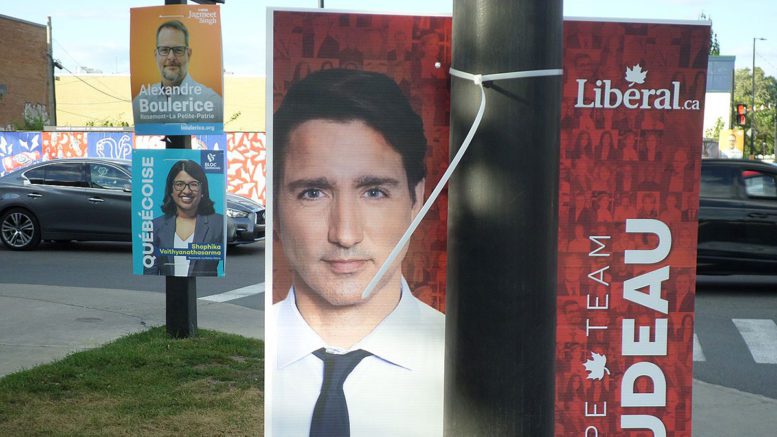It’s election day and Canadians are casting their votes. With the aura of the pandemic still looming large, the conversations leading up to these elections have been anything but usual.
In Alberta, the proof-of-vaccine passport program begins today and has caused some division among voters. Many, like restaurant owner Mark Petros, are in support of the new laws put in place as the province tries to slow down the virus.
“We’re gonna try it and we’re gonna do it because we believe in it,” Petros said. “We’re not here to fight with people, we’re here to keep everyone safe.”
Some, on the other hand, are desperate to shed light on why many aren’t rushing to get vaccinated — especially people from marginalized groups.
“Indigenous people have that inter-generational healing that needs to get done. That trauma comes up and then people may somehow think that what Maxine Bernier is saying is OK.”
– MICHELLE ROBINSON
The topic of vaccination has played a major role in this year’s federal elections. There has been a lot of language that demonizes people who are yet to be vaccinated.
Michelle Robinson, a Sahtu Dene and host of podcast Native Calgarian points out reasons why some Indigenous people might refuse the vaccine and voting in general.
“There’s been a lot of conversation about reconciliation and Indian residential schools but, you know, we haven’t even discussed Indian hospitals,” Robinson said.
Robinson, who herself has been double vaccinated, is referring to the past mistreatment of indegenous people in Canadian sanatoriums. Patients were experimented on without their consent and healthy children were exposed to others with tuberculosis.
“That is the reality and the legacy of indegenous people in Canada,” Robinson said. “There’s no trust between the health industry and indegenous people.”
Robinson highlights that Canadian recommendations on vaccines and vitamins were based on experiments done on indigenous children in these facilities.
But along with the distrust of the healthcare system is the lack of accessibility to doctors in some areas.
Lethbridge, for example, where Robinson recently moved to, lacks available doctors. There are certain barriers preventing many from accessing healthcare let alone get double vaccinated.
Since the pandemic began, The People’s Party has gained traction mainly because of their stance against vaccine policies.
“We have a whole group of people who would be happy to be part of something like the People’s Party cause they don’t trust the government but don’t know their history enough to understand why,” Robinson said. “They somehow think that what Maxine Bernier is saying is ok.”
Some Indigenous people are NDP which is puzzling to Robinson “when you look at the big picture.” And others decide not to vote because they simply do not see their role in voting for a Canadian government.
Robinson, however, urges them to learn about the history of their relationship with Canada’s system and to vote because, as she put it, “it is a harm reduction strategy.”

